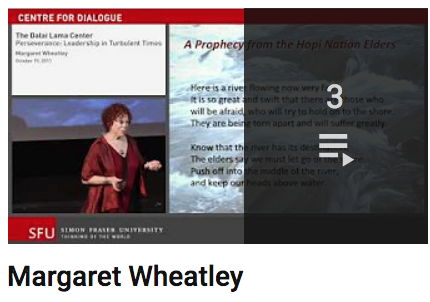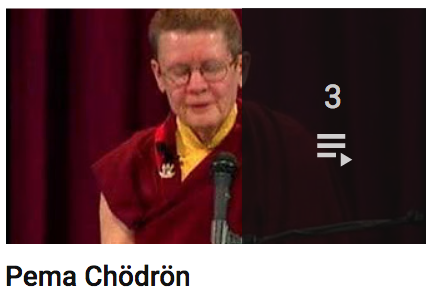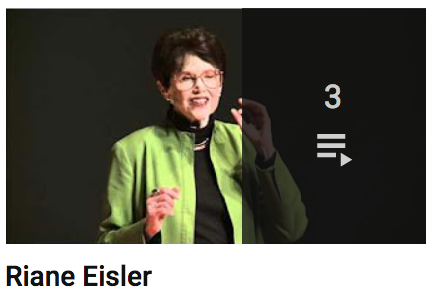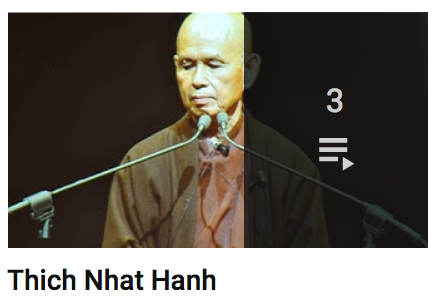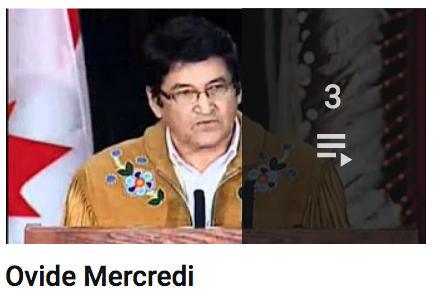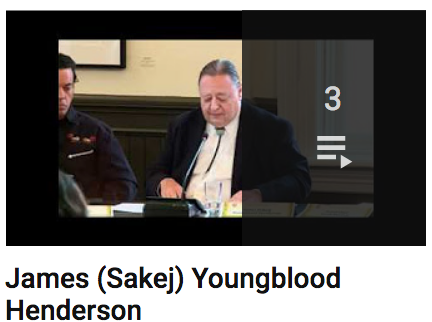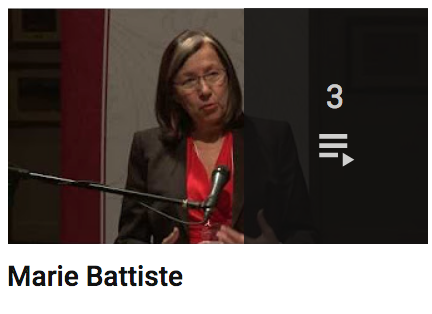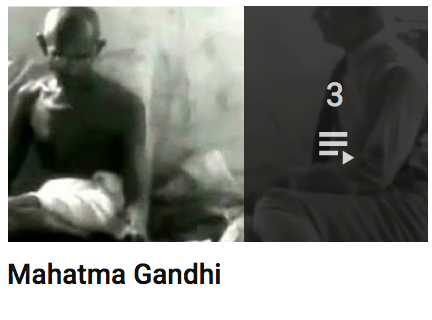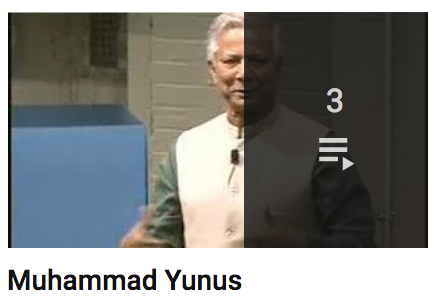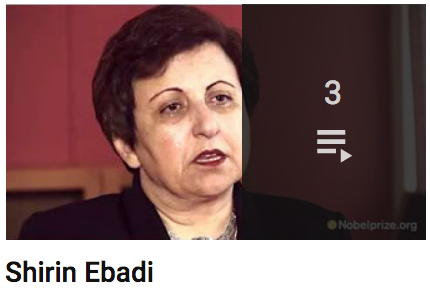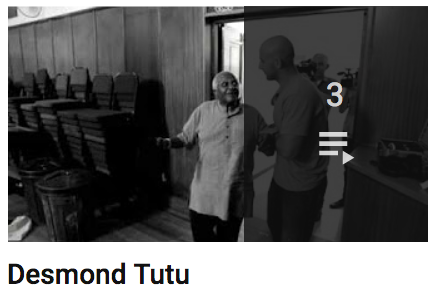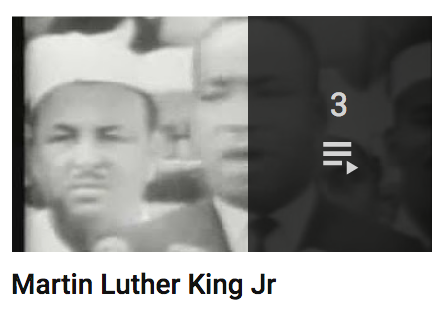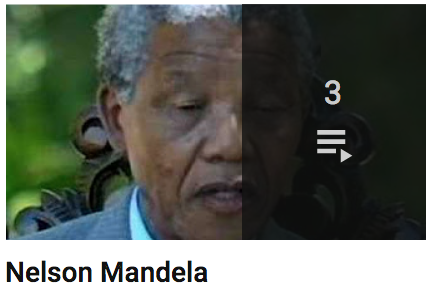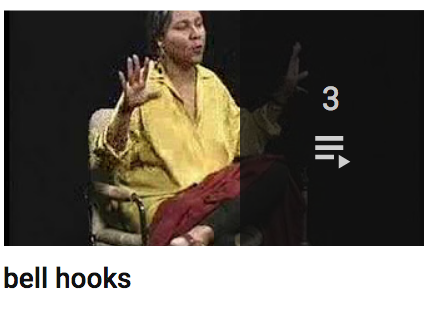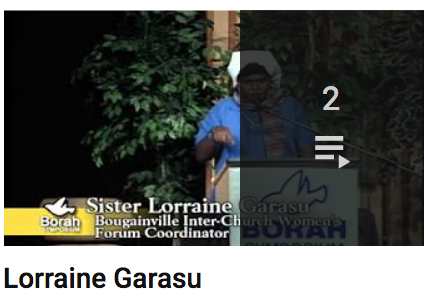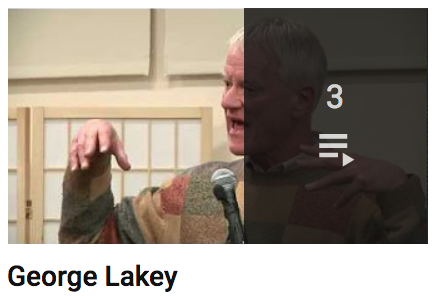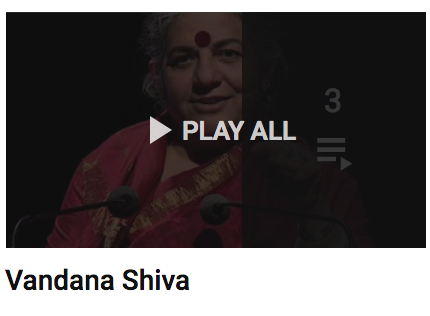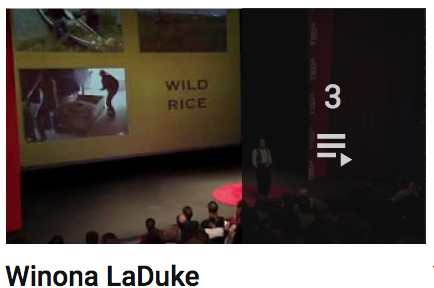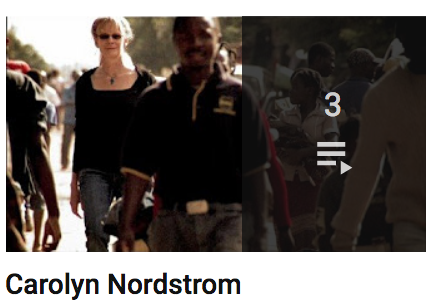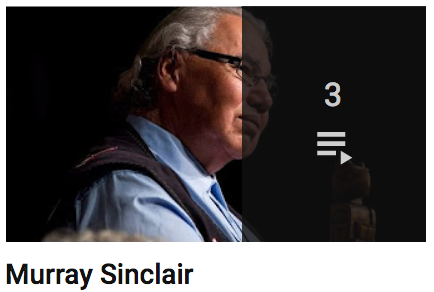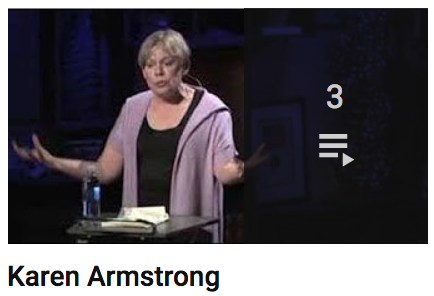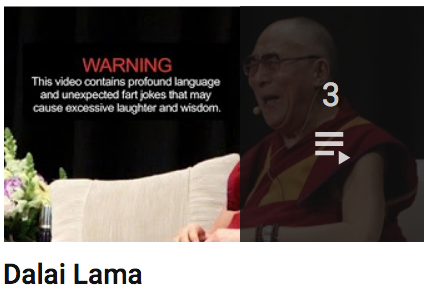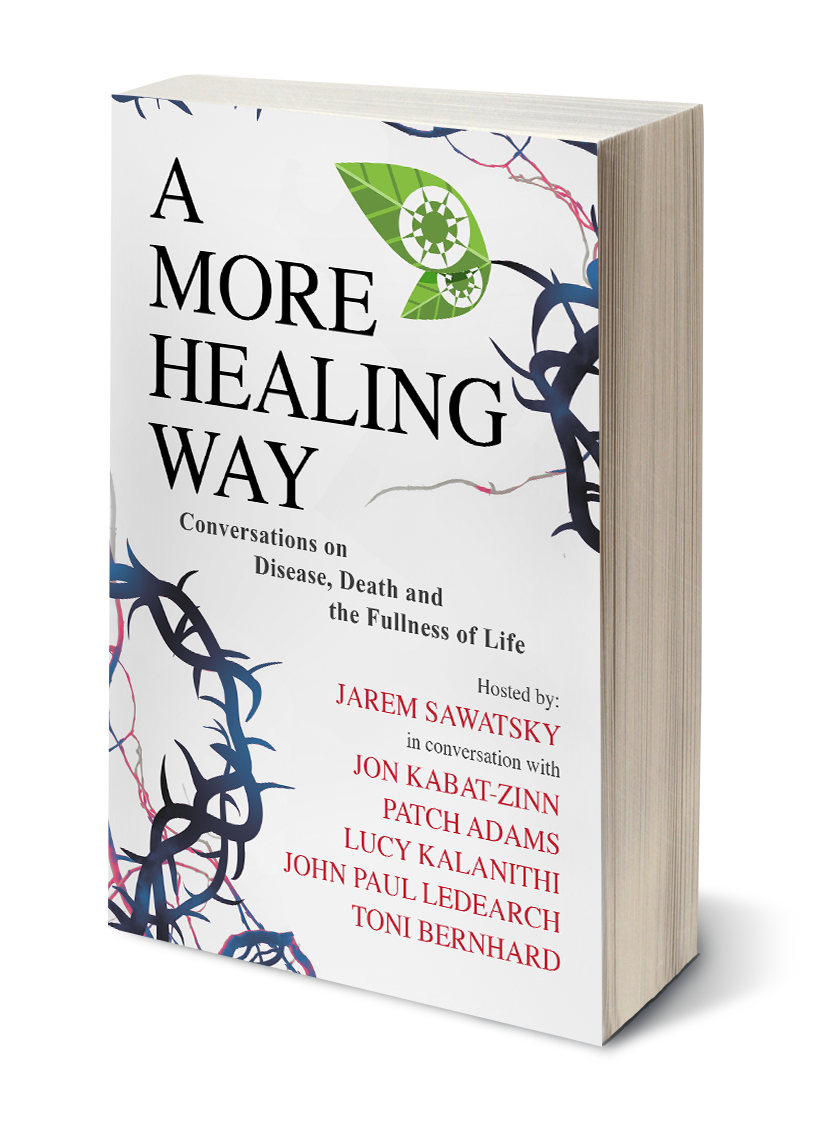
Where should I send the audio and video series?

Where should I send the audio and video series?
Note: We are at a time when, more than ever, we need the Great Souls of Peace to rise up and lead. Some say Christmas is a time for peace. I share these reflections to awaken the Great Soul of Peace within each of you. Ovide Mercredi was granted the Peace and Justice Studies Association Social Courage Award on Oct 3, 2010, at an award ceremony at the Canadian Mennonite University, Winnipeg, Manitoba, Canada. This was introductory speech which I gave.
Dear friends,
Imagine for a moment people you consider to be Great Souls – the title conferred on Gandhi. There is a very real sense in which all of us, every living being is a great soul. However, I am talking is different. I am not speaking of perfection as I don’t believe it exists. But I am speaking about those people whose compassion, wisdom, feistiness and freshness burn so bright that in their presence we are stopped in our tracks, and slowly we feel our hearts door open wider. Who are the people you would include in a list of this kind of Great Soul?
For me, this list includes people like Gandhi, Mother Teresa, Martin Luther King, Nelson Mandela, Dorothy Day, Thich Nhat Hanh, Burma Bushie, Jean Vanier. Over the next few minutes, I would like to make the argument that Ovide Mercredi belongs to this list. I do this with some degree of risk to damaging Ovide, as my goal is neither to embarrass him nor to flatter him – as neither embarrassment nor flattery positively nourishes the heart of the peacebuilder. What I seek to do is to describe to the best of my abilities what it is that we are honor by conferring this social courage award on Ovide Mercredi.
Rather than give you a biographical overview of Ovide’s life, I’ve organized my comments according to 9 characteristics of Great Souls of Peace. To develop this criterion, I wrote down my list of Great Souls and simply asked, what do they have in common? What characteristics or traits or patterns do these Great Souls have in common? Then I asked how does Ovide’s life and work fit this story. So, see if these characteristics fit you own list of Great Souls. And listen to the life and work of a brilliant human being we are about to honour with a Social Change Award.
As you know the intended purpose of oppression is to weaken the masses by creating either slumber, obedience or mass dysfunction. And to some degree, we must confess it works. However, there are some Great Souls for whom the suffering of oppression awakens their compassionate heart.
Ovide Mercredi was born Jan 30, 1946, in Grand Rapids, Manitoba, about 6 hours north of here. He was born into an Aboriginal Cree community. Foreshadowing and perhaps acting as a counterpoint to his own work at constitutional reform, the year Mercredi was born, the federal government had just past The Canadian Citizenship Act 1946 is creating for the first time a Canadian citizenship separate from the British. Since this act in the year of Ovide’s birth – we have been debated what it means to be a Canadian – and Ovide has been central to this debate for the last 30 years. In the year of his birth though, This act – heralded by academics of the time “as a symbol of Canadian aspirations as a nation” (George T. Tamaki- – http://www.jstor.org/stable/824453), treated Aboriginal Canadians as Immigrants to Canada. In the year of his birth, Canada was entering the 72 years of the government residential school system. Generations of children had already been stolen from their families and communities and relocated to government and church-run schools designed to civilize the Indian. We know now that those schools were filled with sexual abuse, physical abuse, cultural abuse, spiritual abuse. The current Canadian Truth and Reconciliation Commission is designed to bring these stories to light. But when Ovide was born Canada was 72 years into the abuse experiment – an experiment that did not end until Ovide turned 50 (1996). At age 14 (1960 – 105 years after African American won the right to vote,) he saw Aboriginal people get the right to vote for the first time. My point, Ovide was born into the context of deep colonialism, patriarchy, and racism. An attempted cultural genocide was in full swing. In a recent interview, Ovide said concerning his early years that he had learned from his own tradition to respect all people and that he had learned from Christians to Christ loves all the same without distinction. However, his first-hand experience in white society was that of open ramped racism. His response to this kind of oppressive suffering was to reject it. In his words, “I am a human being. I don’t like this. I don’t deserve it. You store these memories in the back of your mind and you say to yourself someday when I can do something about it I am going to help my people.” And he did.
Ovide dedicated his life to working for the betterment of his people. Through his law degree in the University of Manitoba, he focuses on constitutional law and organizing young Aboriginal leaders. While studying he became the first president of a Native Students Association in Canada. During this time he also helped organize and teach in the open university context – a free university education system. He became part of a new wave of Aboriginal leaders who were equipped by the threefold power of 1. the resilience and teachings of the ancestors 2. their witness to decades of structural violence against their people and 3. The teachings of the dominant groups higher education system. The oppressive systems of the dominant society did not force him into a deep slumber but rather awakened his heart of compassion and sharpened promise to help his people by transforming the whole system.
When Gandhi touched the roots of his own Hindu tradition when the Dalai Lama recounts the stories of the Buddha, the Martin Luther King Jr tells us of the politics of Jesus, each of them dives so deeply into their own particular traditions, that they find something that brings healing to all people. Drawing from their own particular tradition they teach us about everyday conditions of all creation. Hang around Ovide and you will see this same logic at work.
At a conference entitled “Save Canada” in 1999 Ovide made a presentation and said, “We the Indigenous Peoples of the Americas understand all too well that our survival and future is linked to the maintenance of our separate and distinct identity, and to the free exercise of our inherent self-determination within our territories.” In a political imagination that is neither liberal nor conservative, Ovide speaks of the need to maintain separate and distinct identities among the peoples of the land. This frightens some. We are afraid that the world is a zero-sum game where the advantage of one is the disadvantage of another, where difference leads to domination, and we are blinded by the idea that sameness might lead justice or equal treatment. Ovide does not seem to hold this view. He seems to argue that by rightly drawing on our distinct identities we can create the conditions to meet and embrace the other as a respected fellow human being. Great souls draw on their own particular spiritual tradition in such a ways as to lead us all back to loving all of creation.
Two years ago when I approached Ovide to teach a class in the Canadian School of Peacebuilding, I said we could design a class around whatever you want to teach about. He said “I want to teach entitled “Cree Approach to Nonviolence. Nonviolence is not new to Ovide. Some years ago The Government of India nominated him for the Gandhi Peace Prize and a whole documentary on his life was created around this event. But winning accolades from outsiders concerning nonviolence did not make his work any easier. Now he had to defend himself against accusations from his own people that he was importing practices from other cultures. However, the ethic to respect all peoples he learned at home pushed him towards an ethic of nonviolent action. He knew that he needed some way to transform both the suffering and the anger at the suffering. He knew he had to transform suffering into wise compassionate action. And he did. One quick example: Ovide was assigned to be a mediator in the Burnt Church conflict in 2000 in New Brunswick. When violent conflicts were starting between government workers and aboriginal lobster fishers, Ovide came. Unknown to many Canadians, Canada again teetered on the edge of a violence that could overspread throughout the country. Ovide was there. And he was calling for nonviolence – not because he thought everyone needed to be nice but because he did not want the aboriginal people to lose. Listen to his words at the time – “It’s very important for the people in Burnt Church, to use restraint and non-violence, or the government will win,” Ovide was interested in Nonviolence as a strategic means to not give up your power to the government. Great Souls seems to find their way to nonviolent engaged action and on this matter, Ovide is no exception.
There are those great events in history where a people come to a fork in the road. Where each path represents a very different story. I don’t have time to give you a 20-year history of such events in Canada. But Ovide has been at most of them – advocating for Aboriginal people, advocating for nonviolence, advocating for a Canada that includes vibrant, healthy and self-determining Aboriginal communities. From 1989 to present Ovide has to lead many official leadership positions from the Chief of his own community to National Chief of the Assembly of First Nations. But when key national events were taking Ovide was there.
In the Meech Lake Accord of 1990 – when an effort at Constitutional Reform in Canada was stopped by the raising of single eagle feather here in Manitoba, Ovide was there.
In the Oka Crisis of 1990 in Quebec – When Canadian Military guns faced Aboriginal warrior guns, over the right use of a piece of land, and when Canada was almost engulfed in a civil war, Ovide was there.
In the 1991-92 Charlottetown Accord in Prince Edward Island – when Canada proposed changing the Constitution – Ovide as there to see that aboriginal rights would be included in new reforms.
In Ipperwash Crisis of 1995 in Ontario – when Ontario Provincial Police shot and killed Aboriginal protestor, Dudley George – Ovide was there calling for negotiations.
In Gustafson Lake Standoff of 1995 in BC – at another land dispute that lead to an armed stand-off where it seems the Royal Canadian Mounted Police led a paramilitary operation of 31-days, killing one woman, firing 77,000 rounds of ammunition through the deployment of 400 officers, again Ovide was there trying to listen and to talk about peaceful negotiation.
This is just a small sampler of stories. My point, coast to coast to coast, at those pregnant moments of history Great Souls are there. Even if few others understand the long-term significance of these events while there are happen, Great Souls, are there listening to us and calling us into more just directions.
I don’t have time to say much about this perhaps you felt it yesterday. If you want to get a sense of the power of his voice to create the change you can read directly from Ovide’s co-authored book “In the Rapids: Navigating the Future of First Nations”. When Great Souls speak something happens in our hearts that transcends the words they are speaking. The same words from a different mouth would achieve different results. When great souls speak we are stopped in our tracks, as somehow their words, however strong, seem to offer some kind of healing balm to our wounded hearts. You should decide for yourself. When Ovide speaks my heart’s door opens.
Great Souls seems to have enough excess peace, freshness, stability, and stillness that others can take refuge in them. We are refreshed in their presence.
There are some formal indicators of Ovide serving this kind of purpose: he has 4 honor law degrees, he is the founding Chancellor of the University College of the North and in 2006 he was given the Order of Manitoba, the provinces highest order.
However, what I am speaking of is somewhat different. Go to a restaurant with Ovide and see what happens. Even if he turns off his constantly ringing Blackberry, you will not get through the meal uninterrupted. Politicians, actors, judges, business people even the serving staff of the restaurant will come up to him – they want to greet him and thank him. Really they want to take refuge in him. Great Souls are the kind of people others can take refuge in.
If you listen to a speech of Ovide’s and don’t feel uncomfortable, then you haven’t really been listening. Ovide is a persistent teacher – everything is a lesson. He sees it as his place to name those hidden injustices others don’t want to see.
Not surprisingly, this trait has made him somewhat unpopular in some circles. When he occupied the top leadership role in Aboriginal political structures in Canada, the government tried to isolate him and work around him. He named things they did not want to see. When his term as national chief ended – we were offered no plush positions from the government as has sometimes been the case. The Social Courage to name what others don’t want to hear is often a lonely path. But this is a key mark of Great Souls.
I knew Ovide was a great leader and teacher but it wasn’t until I went to his house that I learned what a deeply creative spirit he is. After the hospitable welcome, what you first notice in his house is that it looks more like an art studio than a house. Art is all over the house, some of it gifts, some of it his partners and some of it his own – works in progress – paintings mostly. Again every piece has beauty, mystery and of course, a teaching. Ovide is not only a painter but also a poet. Ask him what the church pew knows and you just might get a poem in return. Dear friends peacebuilding is an art. Ovide has the imagination of an artist. This is not incidental but central to his work. Great souls use great creativity to take people beyond the horizon of what seemed possible.
While I knew that Ovide might challenge some of the pictures that I have painted here tonight – to downplay his own role. So I thought I would build some preemptive action right into the criteria.
Perhaps this is a criterion that separates Great Souls from politicians who are often ready to tell you how good they are. Great Souls are uncomfortable being put on a pedestal. Uncomfortable for themselves and for the person putting them on a pedestal. For both parties pedestals create paralysis. Internally, Great Souls seem to feel shy, misunderstood, and they are highly self-critical. They know that they are still in the process of healing of arriving. And they know that admirers are tempted to substitute meaningful action with fleeting praise. And so Great Souls deny that they are great souls.
Ok, that is my list of how I think Ovide meets my 9 Characteristics of being a Great Soul. Make of them what you will. For me, Ovide life and teachings show a bold way of Social Courage – even in the face of great adversity. Conferring this award for social courage on Ovide, we his life still in the process of being lived. And we commit ourselves to moving beyond praise to do the hard work of change in this spirit of Social Courage.
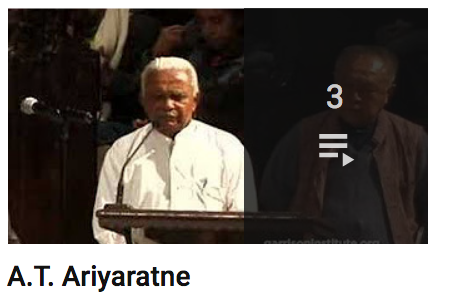
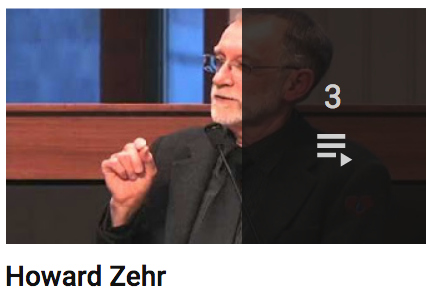
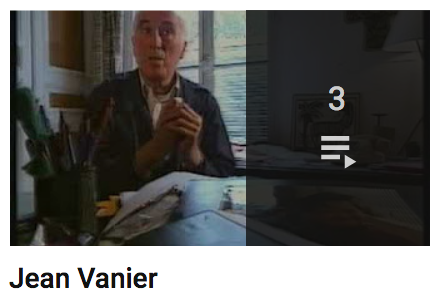
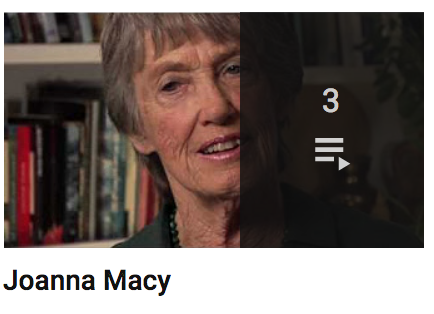
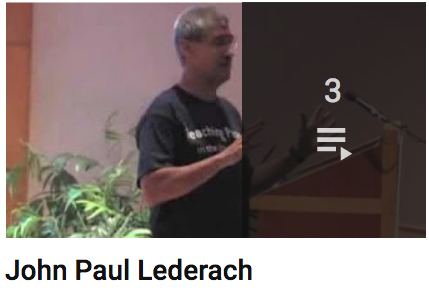
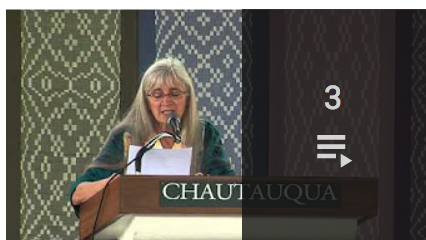 Kay Pranis
Kay Pranis